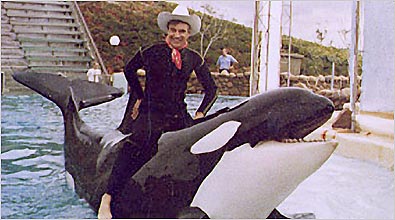We’re not exactly cord-cutters, not least because our internet is cheaper when we bundle it with cable, but let’s say we don’t watch a lot of broadcast television. Most of the stuff my kids watch is streaming, and most of it is on paid streaming services. Which means that I actually had to explain to my six-year-old this week why the music we were listening to kept being interrupted to talk about the store he only thinks of as “Dad’s work.”
The commercial as we know it has had a relatively brief run in the history of entertainment. Those of you familiar with old radio shows or the early years of television will be familiar with programs actually sponsored by a single product. (For members of the Dissolve Couch, this has turned into a lunatic obsession with Lux Toilet Soap, sponsor of one of the best radio dramas we’ve done, albeit one that’s only as good as its source material.) This is why you’d get Little Orphan Annie encouraging kids to drink their Ovaltine; on the radio, Ovaltine paid the bills.
Obviously, that system is ripe for abuse; Judgment at Nuremberg is widely believed (probably inaccurately) to have been edited by the American Gas Company, a sponsor of Playhouse 90 and company obviously concerned that people not see their gas stoves as unsafe. A moment’s quick research shows an actual news broadcast called Camel’s News Caravan that actually required its host, John Cameron Swayze, to have one of their cigarettes constantly lit during the show. The mind boggles. Single-sponsor broadcasts gave us the relative mundanity of having Buck Rogers talking about Popsicles (a script read of the show gave me some of my only cravings during my last pregnancy, as all three commercials were for Fudgsicles), but it also gave us Arthur Godfrey advising us to buy Chesterfields by the carton.
The main reason for doing away with the single sponsor was financial—television was getting more expensive to produce, and it was cheaper to have a commercial or two on several shows rather than pay for an entire program by yourself, even if you drew less attention for it. And so instead of Hollywood starlets telling you to give yourself a Lux Toilet Soap facial, you’d get “Before you dress, Caress” in half the primetime shows aimed at women. But you’d also get women ogling construction workers and drinking Diet Coke in the same commercial break. In theory, neither Lever Brothers nor Coca-Cola could control the programming.
[We pause for my own commercial programming—if you want the chance to help influence what I write, consider supporting my Patreon or Ko-fi!]Then there are the classic local commercials—I’m a native Angeleno and grew up on “Cal Worthington and his dog, Spot,” which I’ll probably show the kids when they’re old enough to appreciate that particular brand of lunacy. Ernest P. Worrel got his start on commercials; I believe the Cerritos Auto Mall in California was one of the companies to hire Jim Varney for their advertising. There’s doubtless some jingle from your part of the country that you can sing with very little prompting from whoever used to advertise all the time on the stuff you watched.
But Simon basically doesn’t grasp the concept of commercials you can’t just skip to get to what you’re actually watching. Yes, he’s seen the first ten seconds of a lot of commercials for a local weed store (you watch cooking shows and cartoons on YouTube, and the algorithm makes certain assumptions about your interests, okay?), but he’s also used to being able to tell the commercial to stop and let him get back to badly pirated episodes of Jake and the Neverland Pirates or whatever his current obsession is. And while I’ve started having the conversation with him about how his two favourite YouTube shows are intended to sell him things, he doesn’t really understand that any more than I fully grasped that it’s what She-Ra was supposed to be doing to me when I was slightly older.
There are some things I expected not to share with my kids. My own mother was born in 1944; the gap of technology and so forth between us is astonishing. (The Beatles are her “band that came around as I was no longer listening to new bands.”) My best friend from grade school’s daughter, who is now older than my friend was when she and her husband got together, once utterly failed to believe my friend when she said that there were no iPods when we were kids. Simon looked at me a bit askance when I told him tablets didn’t exist when I was in school and that we barely had computers. But the idea that we don’t really share the concept of TV commercials is really not something I was expecting beyond the fact that I bet you could get my mom to sing the Maypo jingle, and I can sing about how the taste (of Big Red) will last a little bit longer. The idea that Simon wouldn’t get why we’d sing about products we don’t even usually use is more surprising.
And if you think about it, the whole structure of literally decades of television storytelling is built around commercial breaks, so someday I’m going to have to explain why Mystery Science Theater 3000 has host segments and why they break up the movie even on the new Netflix episodes. Conversations about why some of the jokes are funny, I was expecting, but this?

